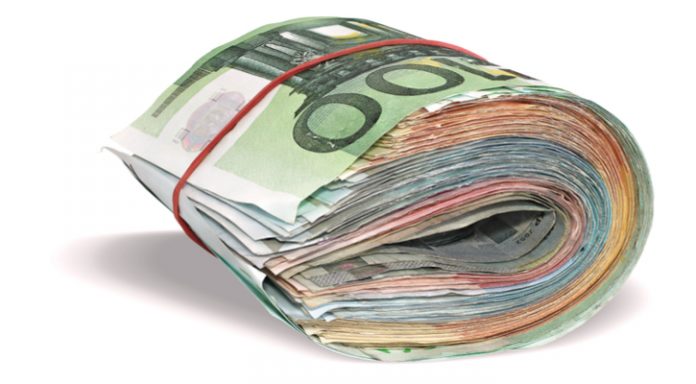The pound moved higher versus the euro in early trading on Tuesday, hitting a peak of €1.1172, before edging lower towards the close.
| What do these figures mean? |
|---|
|
When measuring the value of a pair of currencies, one set equals 1 unit and the other shows the current equivalent. As the market moves, the amount will vary from minute to minute. For example, it could be written: 1 GBP = 1.13990 EUR Here, £1 is equivalent to approximately €1.14. This specifically measures the pound’s worth against the euro. If the euro amount increases in this pairing, it’s positive for the pound. Or, if you were looking at it the other way around: 1 EUR = 0.87271 GBP In this example, €1 is equivalent to approximately £0.87. This measures the euro’s worth versus the British pound. If the sterling number gets larger, it’s good news for the euro. |
The pound shot higher following the release of data that showed that the UK government surplus reached the highest level in 18 years. Thanks to a reduction in borrowing and increased tax receipts, the British Treasury collected £2.2 billion more than it spent during the month. This is almost double what city analysts had been forecasting.
Whilst there were some temporary factors boosting the surplus, the fact that total tax receipts were up 4.5%, indicates that there were also more permanent improvements in public finances. The surplus has come just in time for UK Chancellor Philip Hammond, giving him more leeway for spending in the Autumn Budget, ahead of Brexit.
| Why does strong economic data boost a country’s currency? |
|---|
| Solid economic indicators point to a strong economy. Strong economies have strong currencies because institutions look to invest in countries where growth prospects are high. These institutions require local currency to invest in the country, thus increasing demand and pushing up the money’s worth. So, when a country or region has good economic news, the value of the currency tends to rise. |
Encouraging headlines from the Brexit talks also supported the pound as UK Brexit Secretary Dominic Raab resumed talks with EU Chief Negotiator Michel Barnier.Mr Barnier announced that the talks had entered the final stage and that both parties were optimistic that a deal could be in place well before the end of the year. As concerns over a hard, no deal Brexit receded, the pound gained strength.
| Why is a “soft” Brexit better for sterling than a “hard” Brexit? |
|---|
| A soft Brexit implies anything less than UK’s complete withdrawal from the EU. For example, it could mean the UK retains some form of membership to the European Union single market in exchange for some free movement of people, i.e. immigration. This is considered more positive than a “hard” Brexit, which is a full severance from the EU. The reason “soft” is considered more pound-friendly is because the economic impact would be lower. If there is less negative impact on the economy, foreign investors will continue to invest in the UK. As investment requires local currency, this increased demand for the pound then boosts its value. |
With a very quiet UK economic calendar for the remainder of the week market participants will look towards Brexit headlines to drive trading.
Euro Rallies On Dollar Weakness
The mood towards the euro was strong in the previous session. However, this was more to do with a sharply weaker dollar than any eurozone news The euro often trades inversely to the US dollar and the dollar dived as US President Trump, once again, criticised the Federal Reserve for hiking rates. In the same interview where Trump said he was “not thrilled” with the Fed lifting interest rates, he also accused China and the EU of manipulating their currency. The dollar fell strongly on President Trump’s desire for a softer greenback.
Today the eurozone economic calendar remains quiet, with investors looking towards a barrage of PMI data on Thursday.
This publication is provided for general information purposes only and is not intended to cover every aspect of the topics with which it deals. It is not intended to amount to advice on which you should rely. You must obtain professional or specialist advice before taking, or refraining from, any action on the basis of the content in this publication. The information in this publication does not constitute legal, tax or other professional advice from TransferWise Inc., Currency Live or its affiliates. Prior results do not guarantee a similar outcome. We make no representations, warranties or guarantees, whether express or implied, that the content in the publication is accurate, complete or up to date. Consult our risk warning page for more details.
This article was initially published on TransferWise.com from the same author. The content at Currency Live is the sole opinion of the authors and in no way reflects the views of TransferWise Inc.





